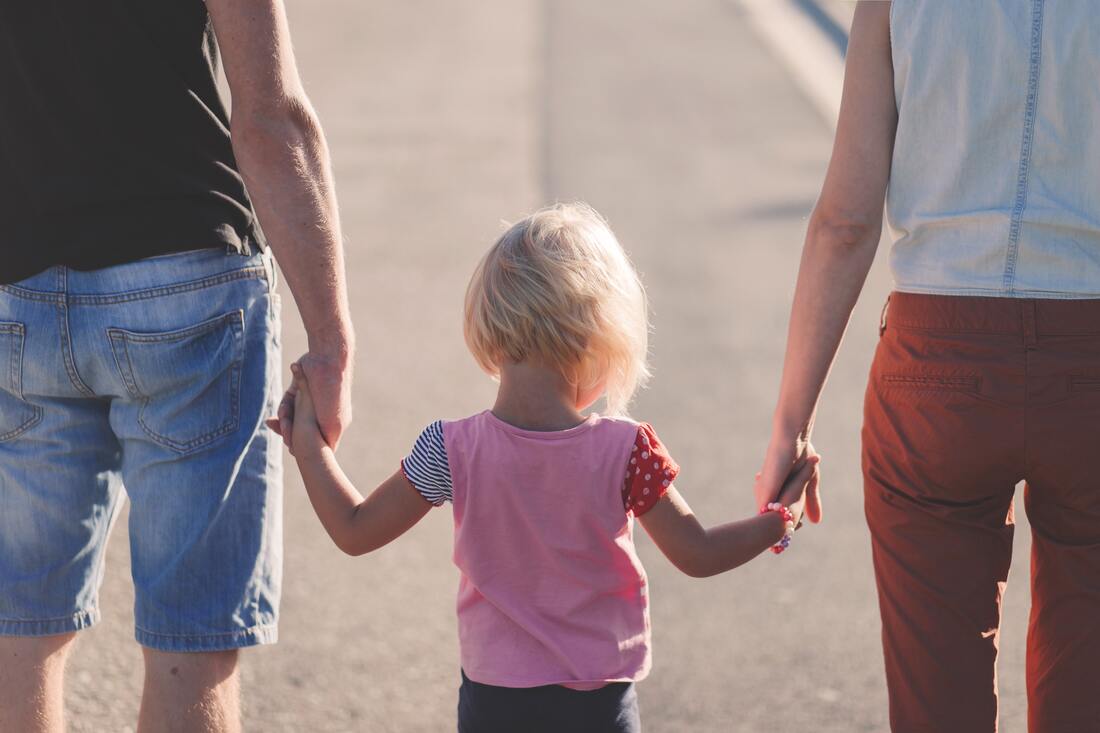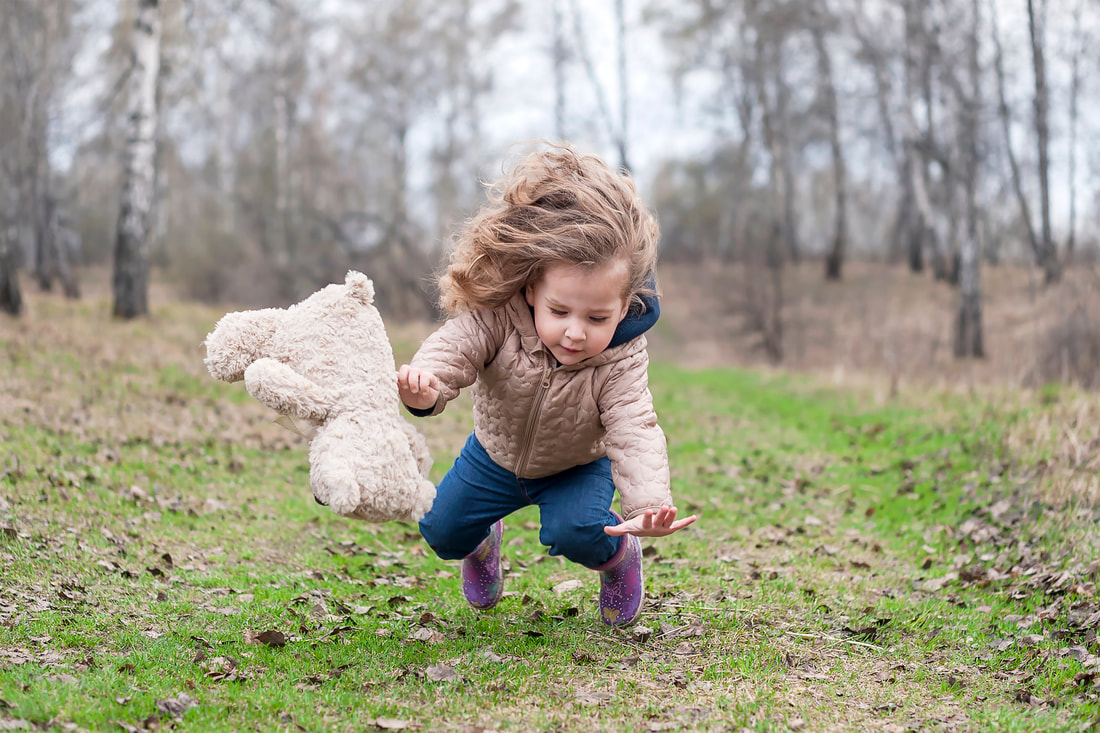 Image by Florian Pircher from Pixabay Yesterday evening, the moon was a perfect silver fingernail sliver setting over the foothills, chasing the setting sun. I was driving north watching the moon and kept joyfully catching glimpses at stoplights or any other opportunity.
This winter, my girls and I have developed an almost daily ritual around the moon as she* goes through her phases. We pause and sit on the front stoop when we come home from school and point out the gibbous moon. We turn out all the lights in the house and run to the window to watch the setting crescent moon. We go outside in pajama feet to see the rising full moon. We also turn out all the lights in the morning and catch the changing of the light as the sun rises. A gift (albeit, one with pros and cons) of having small children is they often wake up before the crack of dawn. Around the winter solstice, my older daughter naturally and suddenly became interested in playing "dark," where we turn out all the house lights and sit in the dark, maybe lighting a candle or two. So we do this in the morning now and then - but letting the sunrise slowly light up the sky and our house. We lie on the floor in the living room and pretend we are camping, watching the sky change colors to the west. We run to the kitchen window and note the different colors of pink, yellow, and blue as the eastern sky lights up. Nature connection can seem mysterious and out of reach in a way that does not serve us - that connection to nature means you feel special things, can tap into vague "energies" that only special people feel, or you have the skills to track a wild animal. The truth is far less glamorous but also far more accessible. Nature connection is turning off the lights in the house, slowing down, and noticing the beauty of the world. Full stop, it is that simple, and I promise you, also that profound. You just have to do it, and most of us think we are too busy - we are too entrenched in our routines of the human world. The tragedy there is that then we loose a part of ourselves that is so deeply human. To know the colors of the sky as a new day begins. To know the phase of the moon and where and when it will rise and set. These are things that you can connect with, no matter where you live, no matter the weather, no matter your age. It is incremental, it is a small thing. And it slowly adds up, welcoming us back into the world that is our home. *I've begun a practice of calling animals, plants, the moon, etc, by he / she / they. This is from a hunch that things we call "it," things we objectify, things we call "things" - feel disposable, not important, or less than (human). I want to use language that instead encourages myself and those around me to respect and build relationships with everything in the natural world.
0 Comments
When a new couple or a new individual client begins work with me, we always take time to explore "family of origin" - the family each individual grew up with. We are working together as detectives to understand each person's "history of relationship." Many of us chug along through life without thoroughly examining our history of relationship. We assume that we are born knowing how relationships work, and we can figure it out via instinct, emotion, and attraction. Instinct, emotion, and attraction are all very persuasive, too! They feel BIG, they feel MEANINGFUL, they feel REAL. Oh, and they feel EXCITING, too! Of course they can get us into trouble if we don't (lovingly) question them. So let's go! Your "history of relationship" is made up of many elements:
For the purpose of the "practice of the week," we're going to focus on how you experienced your parents or caregivers "doing" relationship in the home. This is of crucial significance because as social creatures, we learn how to do relationship by observing those closest to us. This entails a lot more than a general "my childhood was great, I played outside, I was a happy kid, my parents were great." That's nice to hear but it's my job as a therapist to be curious if you're now walking into my office with relationship struggles. Enter the "lovingly question" approach. We're not trying to come up with all the ways you are broken, that feels horrible and just is not true. We're looking for clues as to what areas you learned productive relationship habits and in what areas you could use some coaching. This is about being humble, open, and gentle. Practice of the Week: Consider the following questions. Let them tumble around in your mind for a week. Journal on them. If you can / want to, talk to your parents or the folks that raised you. Talk to siblings if you have them. Look at old family photos. Let things cook inside you and see what comes up - some may be familiar territory - allow room for new insights to arise.
That's a lot to reflect on for a week - these are the sorts of questions that sometimes unfold over years as we begin to gnaw on them and stories and memories emerge. As you begin to put together your own "history of relationship" via observing the people who raised you, give some thought to the impact these experiences had on you, and your own skills in relationship. Where do you really thrive in relationship? Where do you chronically get stuck? Often these "stuck points" have their origins in what we did or did not learn as a kid. Never saw your parents apologize to each other? Conflict meant two adults giving each other the silent treatment for 3 days and a feeling of walking on eggshells? It wouldn't then be a surprise if you struggle in conflict in your intimate relationships - you never learned how to do it well! (Don't worry, join the club, it's a big one). I like this questioning process because, once again, it gets us curious and humble. Of course we don't know what we don't know! The magic lies in the learning. And that's one of the big points of therapy. Turns out there is a whole lot that you can choose to do differently (like learn to argue in a way that does not stir up threat and fear). Ready to learn how to do things differently, or want to be furious or devastated about the way it was? There's space for you here. You can reach me at [email protected] or 720.738.3530. "Crap! I guess we are taking the freeway, now," I said (though perhaps with more colorful swear words).
The road down the street from us is closed for construction, and we've now been driving about 30 minutes for what should be an 8-minute trip to school. I got distracted, let my mind wander, and took a left onto the freeway where I should have gone straight. I take a deep breath and try to be at peace with the fact we're going to be late for school. This happened yesterday, too. Only yesterday the story was "Well, I guess I'm turning onto Elm street. Daddy warned me that Elm was backed up, but I thought we'd see for ourselves. And...yep, it is backed up." So today the story evolves. I tell my daughter, "You know, people usually don't get things right the first time. Usually you make mistakes a couple times, and you just keep learning from them until you get it right. So let's practice for tomorrow. Tomorrow I'll go up the hill, take a right, then straight through past the freeway..." I find myself thinking back to my own experiences growing up and I really wonder if I ever received any training on making mistakes. I've known all too well the shadows of shame, impostor syndrome, perfectionism, and hiding and holding back - all things that can be born out of the deep need to avoid making mistakes. Few of us talk about these experiences in public, but they appear in my office as guarded secrets that finally get the relief that comes with sharing. So, as a therapist, parent, partner, friend and human, I am on a mission to normalize making mistakes - and therefore, what the process of learning actually looks like. Learning involves making mistakes. Learning involves ideas, experimentation, trying, and failing. Putting together all the information of what worked, what did not, and continuing to try and try again. Sometimes a LOT. Amy L. Eva in "Why We Should Embrace Mistakes at School" offers a slew of ideas as well as research supporting this, with the super-cool example of "productive failure" as an approach to teaching math in Singapore, where students struggle through multiple failures as an eventual path to success. I love the term "productive failure," as it strikes me as both humorous and a great re-frame. I could get frustrated and shut-down on my attempts to drive to school, and ensure that I'll keep feeding the negative cycle. Or I can call my navigation mishaps "productive failures," hopefully bypassing shame, creating a space to learn and move forward. So will my mom-ologue (yes, I really just made that up!) about mistakes be a moment of stellar mom-ing or a moment that was completely unmemorable? Really the answer lies in how much I make normalizing - even celebrating and exploring - mistakes a regular part of MY life. Falling forward, again and again and again. The practice of the week: Noticing when it takes multiple tries to get something right, and making that process explicit by pointing it out, either in your head or out loud. Actively re-naming these "mistakes" as "productive failure." Telling yourself, "Wow, I'm really learning here. What productive failures have I had, and what is the important information I have gathered from those experiences? Are there resources I want to seek out? What do I want to try next?" Stick with it. Probably the first few times, or even 20 times, your brain will reply by telling you this is total crap. Notice what stories come up - more shame? Irritation? Strong adherence to the idea that you don't know what you are doing? Remind yourself that learning new skills - such as re-framing the process of making mistakes, or the practice of mindfulness - is a process. Interested in delving deeper into your own experience with shame, perfectionism, or self-doubt? This is the stuff of good therapy. Get in touch with me at 720.738.3530 or via [email protected] and let's get to work. |
Practice of the WeekWeekly practices in mindfulness, self-compassion, nature connection, and healthy relationship habits. Themes are personal growth, committed partnership, parenting, and greater connection with self and the earth. Archives
April 2020
Categories
All
|

720.738.3530 [email protected] Offices in Boulder and Golden, CO Licensed in Colorado and Wyoming Individuals, Couples, and Wilderness Experiences |


 RSS Feed
RSS Feed
